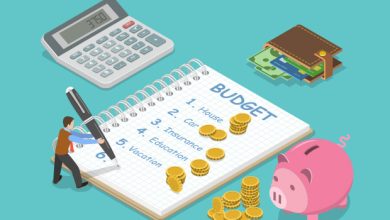Understanding Retirement Benefits: A Comprehensive Guide to Securing Your Financial Future
Understanding Retirement Benefits: A Comprehensive Guide to Securing Your Financial Future
Understanding Retirement Benefits: A Comprehensive Guide to Securing Your Financial Future
Retirement benefits play a crucial role in ensuring a financially secure and comfortable future.
These benefits, offered by employers and government programs, provide a source of income during retirement and help individuals maintain their desired lifestyle.
In this blog content, we will explore the world of retirement benefits, address frequently asked questions, and provide comprehensive answers to help you understand and maximize your retirement benefits.
What Are Retirement Benefits and Why Are They Important?
Retirement benefits are financial provisions offered by employers and government programs to provide income and support during retirement. These benefits are vital because they help individuals maintain their standard of living, cover essential expenses, and enjoy a comfortable retirement. Understanding and maximizing retirement benefits is crucial for securing a financially stable future.
What Types of Retirement Benefits Exist?
There are various types of retirement benefits, including Social Security, employer-sponsored plans like pension plans and 401(k) plans, individual retirement accounts (IRAs), and annuities. Each type of benefit has its own eligibility criteria, contribution rules, and payout options. Familiarizing yourself with these options will help you make informed decisions regarding your retirement planning.
How Does Social Security Work and When Can I Claim It?
Social Security is a government program that provides retirement benefits based on your work history and earnings. The age at which you can claim Social Security benefits ranges from 62 to 70, with full retirement age typically between 66 and 67, depending on your birth year. Understanding how Social Security benefits are calculated and the impact of claiming age can help you optimize your benefits.
What is a Defined Benefit Pension Plan?
A defined benefit pension plan is an employer-sponsored retirement plan that guarantees a specific benefit amount based on factors such as salary, years of service, and a predetermined formula. The employer is responsible for funding and managing the plan, and employees receive regular payments during retirement. These plans offer the advantage of a predictable income stream in retirement.
How Does a Defined Contribution Plan, such as a 401(k), Work?
A defined contribution plan, such as a 401(k), is an employer-sponsored retirement plan where employees contribute a portion of their salary to an individual account. These contributions are often matched by the employer up to a certain percentage. The funds in the account grow tax-deferred until retirement, and the individual assumes responsibility for managing the investments and making withdrawals during retirement.
Can I Contribute to Both a 401(k) and an Individual Retirement Account (IRA)?
Yes, it is possible to contribute to both a 401(k) and an Individual Retirement Account (IRA). However, there are specific contribution limits for each account type. It’s important to understand the contribution limits and any income-based restrictions to optimize your retirement savings across multiple accounts.
What Happens to My Retirement Benefits if I Change Jobs?
When you change jobs, you have several options for handling your retirement benefits. You can leave the funds in your previous employer’s plan, roll them over into your new employer’s plan or an IRA, or cash out the funds (although this may have tax consequences). Understanding the available options and their implications will help you make an informed decision based on your circumstances.
What Role Does Vesting Play in Retirement Benefits?
Vesting refers to the process of earning ownership rights to employer-contributed retirement benefits over time. It determines when you have a non-forfeitable right to those funds. Understanding the vesting schedule of your employer’s retirement plan is crucial to determine when you will be entitled to the full benefits contributed by your employer.
How Can I Maximize My Employer-Sponsored Retirement Benefits?
To maximize your employer-sponsored retirement benefits, take advantage of any employer matching contributions offered in your plan. Contribute at least enough to receive the maximum match, and consider increasing your contributions over time. Additionally, regularly review your investment options, assess your risk tolerance, and seek professional advice to ensure your investments align with your retirement goals.
Are There Any Tax Implications for Retirement Benefits?
Retirement benefits may have tax implications depending on the type of benefit and when you receive distributions. For example, Social Security benefits may be subject to federal income tax based on your total income. Withdrawals from traditional 401(k)s and IRAs are generally taxable, while Roth 401(k)s and IRAs offer tax-free withdrawals in retirement. Understanding these tax implications can help you optimize your retirement income.
What Happens to My Retirement Benefits if I Retire Early?
If you retire early, the treatment of your retirement benefits may vary depending on the specific plan and benefit type. Some plans may have penalties for early withdrawals or reductions in benefits if you retire before reaching the plan’s specified retirement age. It’s important to review the terms of your retirement benefits and understand the impact of early retirement on your specific benefits.
How Can I Ensure a Smooth Transition into Retirement with My Benefits?
To ensure a smooth transition into retirement, review your retirement benefits regularly and update your financial plan as you approach retirement age. Evaluate your projected income and expenses, assess your healthcare coverage, and consider any additional insurance needs. Seek guidance from financial professionals to ensure you have a comprehensive plan that addresses both financial and non-financial aspects of retirement.
Conclusion
Retirement benefits are a crucial aspect of securing a financially stable future. By understanding the various types of retirement benefits, maximizing employer-sponsored plans, and optimizing your Social Security benefits, you can build a strong foundation for a comfortable retirement.




